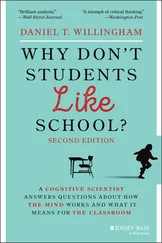Hideo Furukawa - Belka, Why Don't You Bark?
Здесь есть возможность читать онлайн «Hideo Furukawa - Belka, Why Don't You Bark?» весь текст электронной книги совершенно бесплатно (целиком полную версию без сокращений). В некоторых случаях можно слушать аудио, скачать через торрент в формате fb2 и присутствует краткое содержание. Город: San Francisco, Год выпуска: 2012, ISBN: 2012, Издательство: Haikasoru, Жанр: prose_magic, Современная проза, на английском языке. Описание произведения, (предисловие) а так же отзывы посетителей доступны на портале библиотеки ЛибКат.
- Название:Belka, Why Don't You Bark?
- Автор:
- Издательство:Haikasoru
- Жанр:
- Год:2012
- Город:San Francisco
- ISBN:978-1-4215-5089-3
- Рейтинг книги:4 / 5. Голосов: 1
-
Избранное:Добавить в избранное
- Отзывы:
-
Ваша оценка:
- 80
- 1
- 2
- 3
- 4
- 5
Belka, Why Don't You Bark?: краткое содержание, описание и аннотация
Предлагаем к чтению аннотацию, описание, краткое содержание или предисловие (зависит от того, что написал сам автор книги «Belka, Why Don't You Bark?»). Если вы не нашли необходимую информацию о книге — напишите в комментариях, мы постараемся отыскать её.
https://www.youtube.com/watch?v=ay_DcZ6RDFA https://www.youtube.com/watch?v=Orvqrqjk9pU
Belka, Why Don't You Bark? — читать онлайн бесплатно полную книгу (весь текст) целиком
Ниже представлен текст книги, разбитый по страницам. Система сохранения места последней прочитанной страницы, позволяет с удобством читать онлайн бесплатно книгу «Belka, Why Don't You Bark?», без необходимости каждый раз заново искать на чём Вы остановились. Поставьте закладку, и сможете в любой момент перейти на страницу, на которой закончили чтение.
Интервал:
Закладка:
And who protected the Hellhound at that crucial instant, in the absence of his bodyguard? Your mother. Who, if you could split that first second into a hundred fleeting snippets of time, was the first to respond to the eruption from the truck of that group armed with Kalashnikovs? Your mother. Goodnight. A bitch with an eight-year career as a military dog behind her, and actual battle experience. A dog who had successfully seen missions to a successful conclusion even as shells rained down around her. Yes, your mother—the German shepherd who was your mother—was quicker to see what was happening, moved faster than anyone into combat mode. Just as you could instantly distinguish all sorts of drugs by smelling them, so your mother instantaneously recognized the scent of war. No sooner had she detected it in the air than she was acting, reacting, pure reflex. Your mother gave no thought to her age. She threw herself courageously at those men, went on the attack. She leapt at the Kalashnikov group, one man after the other, to take them down. There were no rules. She made it up as she went along.
ONE MAN DOWN!
You saw it.
ANOTHER MAN DOWN!
You saw it.
BUT… BUT… BUT!
You barked. And then your alter ego barked. The Hellhound was shouting. He realized what was happening, saw it unfolding in slow motion before him. Saw who had stepped up to protect him. He understood. He understood her bravery as she flew in the face of all those guns. He was watching it happen. She flew at the Afghan government’s troop of assassins, she threw herself at them, she leapt at them, she was shot. A lurid spray of red blood burst from one of her shoulders, she was thrown almost two feet, she crumpled to the ground. She got up. Once again, she leapt. Once again, she was shot. But she didn’t stop. And then one of the assassins shot another of the assassins. And then… and then.
The Hellhound was shouting.
And you were shouting.
Aaaaah! you both shouted.
Your mother died, and the commandant of the mujahideen organization didn’t die, and neither did the Hellhound. The Kalashnikov attackers’ surprise attack had failed. Because there was a dog, and the dog had confused them, gotten the better of them—they had missed their chance at carrying out the assassination. Finally, the commandant’s men responded. Seven minutes later the men with the Kalashnikovs had been killed. Every last one. But… but your mother was gone and wouldn’t be coming back.
She had died.
Even her corpse had dignity.
This, Guitar, was the second to last turning point in your destiny. Yes, because things were changing. Even before you realized it, Guitar, your alter ego—your second self—was switching from one track to another, changing the course of destiny. The Hellhound was kneeling before Goodnight’s corpse. Kneeling low, almost bowing, crossing himself. You’d seen him do this once before. The Hellhound was moaning. Oooaaoo, aaoooooh. I swear… I swear I’ll never forget this… the second time you’ve risked your life… I’ll never forget! he cried. I swear on my life, I’ll get them for this!
A bolt of spiritual lightning slammed through the Hellhound’s body.
1980. The Hellhound would get his revenge. What did that mean? It meant he had declared war on the Afghan government’s army and on the new Afghan government that supported the army, and on the Soviet Union that stood behind them both. The Hellhound was himself a mujahideen now. He abandoned his Catholic faith and recited the Shahada before witnesses, thereby officially converting to Islam. The choice came naturally. He had been given a sign. My dog lay down her life to protect me—how could I not honor her by… how could I… how could I! So he pressed the switch, changed course. He gave up being a luchador. He was too old now anyway. It was too much of a drain now, getting up there in the ring. But he still needed a second face, needed to serve the people somehow, or he couldn’t deal with the moral dilemma that faced him. And so, with absolutely perfect timing, ever so easily, the Hellhound converted. He was reborn. Devoting himself to jihad as a member of the mujahideen was good. That was it: for the benefit of the Afghan people, he would “Destroy the Soviet Union!” as he cried in his Mexican Spanish–accented Pashto, and this would make up for the negative effect of his immoral activities. This would balance out the evil of his work as a criminal. An outer face and an inner face. And so, even as he managed the cartel, he trafficked drugs from Afghanistan on a global scale and used the profits to support mujahideen organizations and often went out onto the battlefields himself.
As did you, Guitar.
Just as your alter ego’s destiny had changed, so had yours. Naturally, you accompanied the Hellhound onto the battlefields. You yourself desired this. You had seen it—seen your mother, Goodnight, doing her stuff as a military dog, putting up a fight. Fighting to the death. The sight of her valiance was seared into your mind: how she had hurled herself at the attackers without flinching and struggled against them, bitten them, killed them. The image was there, indelible. SHE SHOWED ME WHAT TO DO! you thought. MY MOTHER DIED TO SHOW ME!
I’LL FIGHT!
And so, in 1980, you lived a new life, acted out a new role, as a mujahideen military dog. You went into battle in Afghanistan. Like your alter ego, you possessed two faces. An outer face and an inner face. You were a drug-sniffing dog and a military dog.
It was a huge transformation.
But this was still only the second to the last.
You, dogs, dogs whose bloodlines were channeled by the twentieth century, by a century of war, a century of military dogs, you who were scattered over the face of the earth, increasing your numbers, where, in the end, would the branches of your great family tree converge?
What was your destiny?
The Afghan War devolved into a quagmire. For the USSR. All sorts of miscalculations were made, right from the start. Kabul had immediately been brought under control, and yet people refused to recognize the Soviet-backed puppet government. Any number of rebellions and riots broke out. The situation remained grave. Far from being worn down, the mujahideen organizations grew stronger by the day, month after month, year after year. New anti-Soviet factions kept popping up, and by spring 1981 the USSR had surpassed what was supposed to be the upper limit of one hundred thousand soldiers stationed in Afghanistan. This was all a miscalculation, of course. They still couldn’t crush the rebellions. They had bungled it.
In 1981, efforts to suppress the jihad made no headway.
No headway was made in 1982, either.
Afghanistan could not be kept stable. The country was being destroyed. The miscalculations continued.
Clearly this war (this “conflict,” from the Soviet perspective) was going to be long. Clearly it was going to be a quagmire.
As the Afghan War continued, the Soviet Union itself began undergoing changes. The most obvious was the drama that surrounded the change in leadership. It wasn’t a coup. On November 10, 1982, Leonid Brezhnev (General Secretary of the Communist Party, Marshal of the Soviet Union, Chairman of the Presidium of the Supreme Soviet) died. He was seventy-six and died of illness. He was succeeded as general secretary by Yuri Andropov, who had previously served for fifteen years as the director of the KGB. Andropov was sixty-eight. He called on the resources of his old haunt in order to solidify his grasp on power. He named the chairman of the KGB, a confidant, as interior minister and named the Azerbaijan KGB chief as deputy premier. He tried, in other words, to remove everyone in the Brezhnev faction from government. And his reliance on the KGB didn’t stop with personnel matters of this sort—he realized its potential usefulness in bringing all sorts of problems under control. If General Secretary Andropov said “Do it!” every bureau in the KGB snapped into action. For instance, it was occasionally possible to dilute the criticisms that were being leveled against the USSR and that had been growing shrill in the wake of its invasion of Afghanistan, by spreading information about arms reductions and the abolition of nuclear weapons, and it was the job of the KGB First Chief Directorate, which handled everything relating to foreign operations and intelligence, to spread (quietly) this information (or misinformation). The First Chief Directorate was made up of ten departments that handled espionage operations in various geographical regions. The third department, for instance, was in charge of the United Kingdom, Australia, New Zealand, and Scandinavia; the sixth department was in charge of China, Vietnam, and North Korea; and so on. Andropov fully exploited the potential of these ten departments and did so by granting himself vast authority of a sort that would never have been permitted when Brezhnev was general secretary. Naturally, he also decided to use the KGB to improve—from the Soviet perspective—the situation in Afghanistan. And so it came about that they were sent in. It happened in summer 1983: the most highly classified unit under the administration of KGB Border Guard Headquarters set foot on Afghan soil. It was known by the code name “S,” or sometimes “Department S.” On June 16, Andropov had been chosen as the new Chairman of the Presidium of the Supreme Soviet, so he now had control over everything—the party, the KBG, and the army. He had climbed his way to the top both in name and in fact, and was both the leader of and the most powerful person in the entire Soviet Union. This was how “S” got permission to carry out independent operations, free from army supervision—an unprecedented level of authority. “S” had no need to be in contact with the Main Intelligence Directorate, or GRU, despite the fact that the GRU oversaw all the special forces in the USSR.
Читать дальшеИнтервал:
Закладка:
Похожие книги на «Belka, Why Don't You Bark?»
Представляем Вашему вниманию похожие книги на «Belka, Why Don't You Bark?» списком для выбора. Мы отобрали схожую по названию и смыслу литературу в надежде предоставить читателям больше вариантов отыскать новые, интересные, ещё непрочитанные произведения.
Обсуждение, отзывы о книге «Belka, Why Don't You Bark?» и просто собственные мнения читателей. Оставьте ваши комментарии, напишите, что Вы думаете о произведении, его смысле или главных героях. Укажите что конкретно понравилось, а что нет, и почему Вы так считаете.












